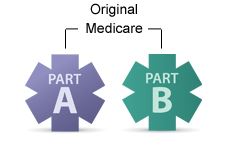Medicare Frequently Asked Questions (FAQ)
Updated Nov. 29, 2025
General Basics
Q: What is Medicare, and who qualifies for it?
A: Medicare is a federal health insurance program for people 65 and older, and for younger people with certain disabilities or end-stage renal disease (ESRD).
Q: What’s the difference between Original Medicare and Medicare Advantage?
A: Original Medicare = Part A (hospital) + Part B (medical). Medicare Advantage (Part C) = Private plan that combines A & B, usually with drug coverage and extra benefits.
Q: When can I sign up for Medicare?
A: Your Initial Enrollment Period (IEP) is the 7 months around your 65th birthday (3 before, the month of, and three after).
Q: Do I need to enroll if I’m still working and have employer insurance?
A: If you have large employer coverage (20+ employees), you can delay Part B without penalty. If not, you should enroll.
Q: What’s the difference between Medicare and Medicaid?
A: Medicare = Federal program, based on age or disability. Medicaid = State & federal program, based on income.
Costs
Q: How much does Medicare cost?
A: Part A: Usually free (if you paid Medicare taxes 10+ years). Part B: $202.90/month in 2026 for most. Part C & D: Vary by plan.
Q: What is the Medicare Part B premium, and how is it determined?
A: $202.90/month in 2026, higher if your income is above certain levels (IRMAA).
Q: What are deductibles, copays, and coinsurance?
A. Deductible = What you pay first. Copay = Fixed amount per service. Coinsurance = Percentage you pay after deductible.
Q: Does Medicare cover everything?
A: No. You’ll pay for deductibles, copays, coinsurance, drugs, dental, vision, hearing, and long-term care unless you have extra coverage.
Q: Will I be penalized if I don’t sign up when eligible?
A: Yes. Late penalties apply for Part B and Part D if you don’t have other creditable coverage.
Coverage
Q: What does Original Medicare cover?
A: Part A = Hospital, skilled nursing, hospice, home health. Part B = Doctor visits, preventive care, outpatient services, and durable equipment.
Q: Does Medicare cover prescriptions?
A: Not under Original Medicare. You need Part D or a Medicare Advantage plan with drug coverage.
Q: Does Medicare cover dental, vision, or hearing?
A: Generally, no. Some Medicare Advantage plans include these benefits.
Q: Will Medicare cover me outside the U.S.?
A: Usually no, except in minimal cases. Medigap Plan G, N, and others may include emergency foreign travel coverage.
Q: Does Medicare cover long-term care or nursing homes?
A: No. Medicare only covers short-term skilled nursing or rehab—not custodial care.
Enrollment & Deadlines
Q: What is the Initial Enrollment Period (IEP)?
A: A 7-month window around your 65th birthday.
Q: What if I miss my enrollment period?
A: You may have to wait until the General Enrollment Period (Jan–Mar) and may face late penalties.
Q: When is the Annual Enrollment Period (AEP)?
A: Every year from Oct 15 to Dec 7. You can change Medicare Advantage or Part D plans.
Q: What is the Medicare Advantage Open Enrollment Period?
A: Jan 1–Mar 31. You can switch to another Advantage plan or back to Original Medicare.
Q: How do I switch from one plan to another?
A: Apply for the new plan during an enrollment period; the new coverage automatically replaces the old.
Supplemental Insurance (Medigap)
Q: What is Medigap and how does it work?
A: Medigap (Medicare Supplement) fills the cost gaps in Original Medicare—deductibles, coinsurance, copays.
Q: What’s the difference between Plan G, Plan N, etc.? A: Each lettered plan covers different sets of gaps. Plan G is the most popular (covers almost everything except the Part B deductible).
Q: Can I have both a Medigap plan and Medicare Advantage?
A: No. You must choose one or the other.
Q: When can I buy a Medigap policy without medical underwriting?
A: During your Medigap Open Enrollment Period (6 months starting when you’re 65 and enrolled in Part B).
Q: Will Medigap cover services Medicare doesn’t?
A: No. It only covers Medicare’s cost gaps, not extras like dental or vision.
Prescription Drug Coverage (Part D)
Q: Do I need Part D if I don’t take medications?
A: It’s wise to enroll—otherwise you may face a late penalty if you need it later.
Q: What happens if I don’t enroll in Part D on time?
A: You’ll pay a lifetime penalty added to your monthly premium.
Q: How do drug formularies work?
A: Each plan has a list of covered drugs (formulary), organized in tiers with different costs.
Q: What is the maximum out-of-pocket for Part D?
A: The Medicare Part D out-of-pocket maximum for prescription drugs in 2026 is $2,100, a cap that includes your deductibles, copays, and coinsurance for covered medications, after which your plan pays 100% for the rest of the year.
Q: How do I apply for Extra Help with drug costs?
A: Through Social Security or your state Medicaid office.
Other Common Concerns
Q: Can my spouse and I share the same Medicare plan?
A: No. Medicare is individual coverage. Each person must enroll separately.
Q: Does Medicare cover home health care?
A: Yes, but only part-time skilled nursing or therapy—not full-time custodial care.
Q: How do I know if my doctor accepts Medicare?
A: Ask your doctor directly, or check the Medicare.gov Physician Finder.
Q: How do Medicare Advantage HMO and PPO plans differ?
A: HMO: Must use in-network providers (except emergencies). PPO: More flexibility, higher cost for
out-of-network.
Q: Will Medicare cover vaccines and preventive services?
A: Yes. Many vaccines (flu, COVID-19, shingles, pneumonia) and screenings (mammograms, colonoscopies, diabetes checks) are covered.
Please give us your feedback!
What do you think about Medicare Frequently Asked Questions (FAQ)? Write your comments.
Contact Us
For help finding the best Medicare or Individual Health Plan for you, please contact Liberty Medicare or call us at 877-657-7477.











